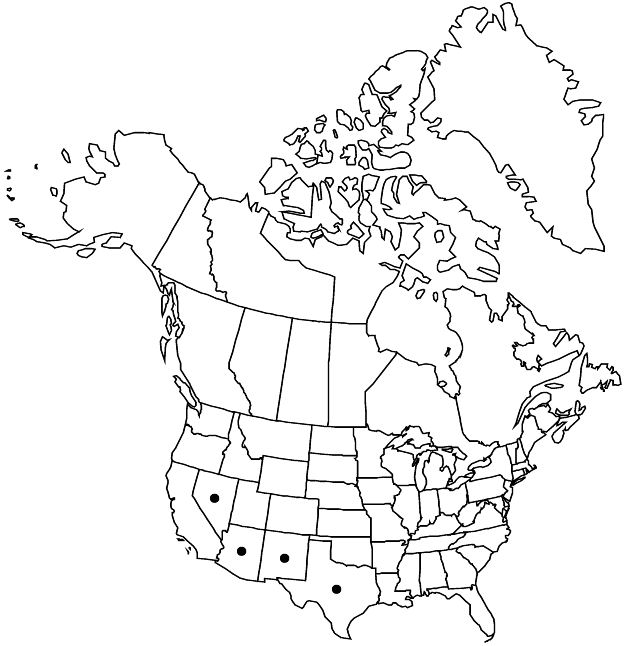Malvella lepidota
SouthW. Naturalist 19: 101. 1974.
Stems prostrate, trailing, densely hairy with mixture of intergrading stellate and silvery-lepidote hairs. Leaves: petiole 1/2–2 times as long as blade; blade ± triangular to somewhat ovate, mostly 1–2 cm, usually 1–2(–3) times longer than wide, base truncate or cuneate, margins irregularly dentate, apex acute, surfaces densely hairy, hairs predominantly stellate abaxially, predominantly silvery-lepidote adaxially. Pedicels long, subequal to subtending leaves; involucellar bractlets usually 0, sometimes 3, filiform. Flowers: calyx 6–8 mm, silvery-lepidote, lobes cordate-ovate, bases plicate, apex acuminate; petals whitish or pale yellow, sometimes fading rose, asymmetric, 10–15 mm; stamens pallid, glabrous, staminal column antheriferous at apex; style ca. 7-branched, pallid, glabrous. Schizocarps 5–6 mm diam.
Phenology: Flowering year-round.
Habitat: Heavy, saline soil on mud flats, lake shores
Elevation: to 1500 m
Distribution

Ariz., Nev., N.Mex., Tex., Mexico (Chihuahua, Coahuila, Durango, San Luis Potosí, Sonora, Zacatecas).
Discussion
Malvella lepidota is somewhat intermediate between the other two species in our range, having both stellate hairs and lepidote scales, and sometimes having an involucel. It is less common and less weedy than M. leprosa.
Selected References
None.